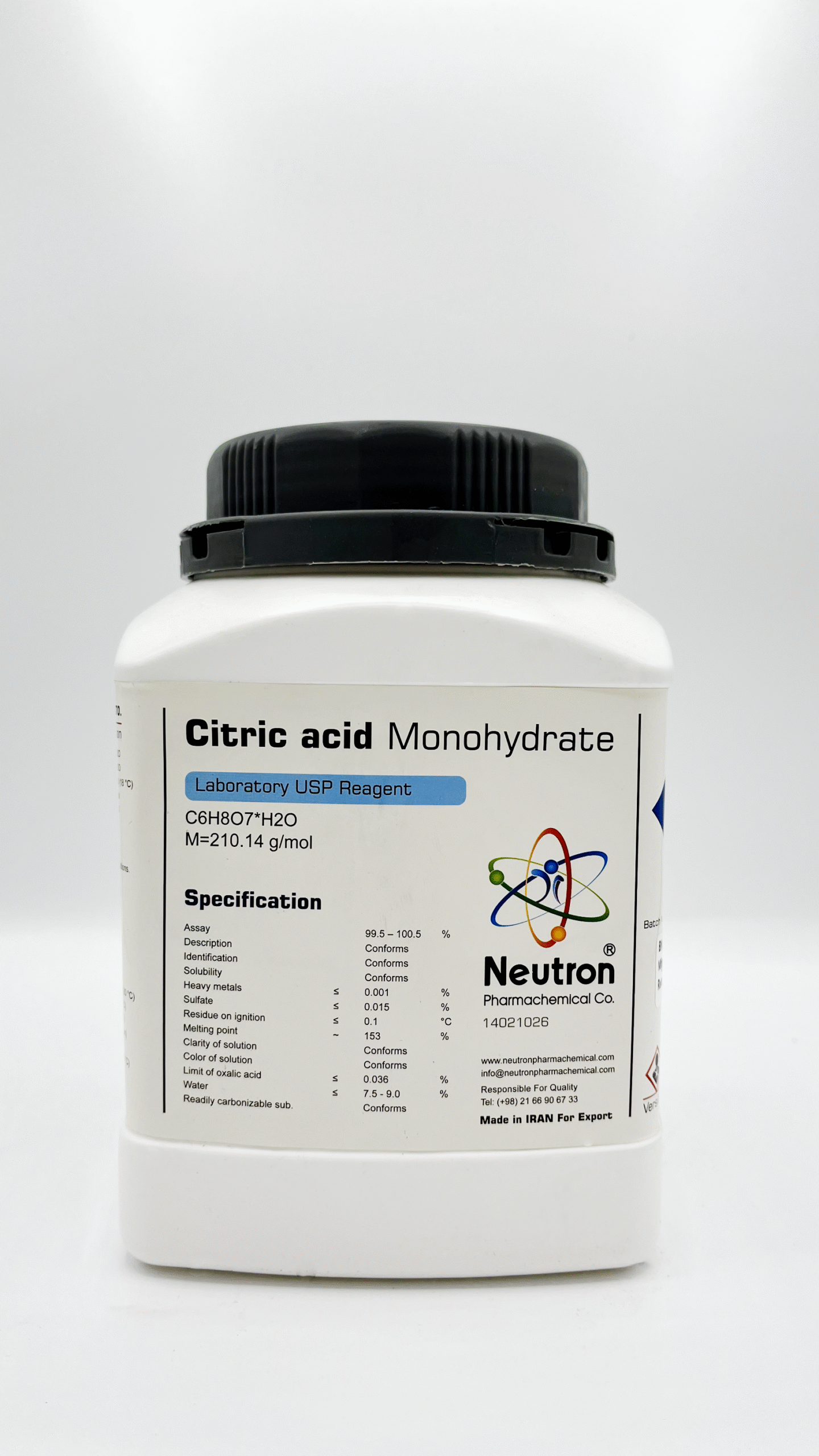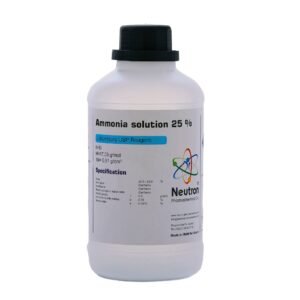Citric acid monohydrate is the monohydrated form of citric acid, a weak organic acid with the formula C₆H₈O₇·H₂O. It appears as a white, crystalline, odorless powder that is highly soluble in water and forms acidic solutions.
🏭⚗️ Production
Citric acid monohydrate is typically produced by fermentation of sugars by Aspergillus niger or by crystallization from aqueous citric acid solutions.
🔬 Properties
• White crystalline solid with a melting point around 100 °C (loses water).
• Highly soluble in water, slightly soluble in ethanol.
• Exhibits acidic properties due to three carboxyl groups.
• Stable under normal conditions but hygroscopic.
🧪 Applications
• Food Industry: Widely used as an acidulant, flavoring agent, and preservative.
• Pharmaceuticals: Used in effervescent tablets, as a chelating agent, and for pH adjustment.
• Cosmetics & Cleaning: Acts as a buffering agent and antioxidant in formulations.
• Other Uses: Employed in industrial applications such as metal cleaning and water treatment.





